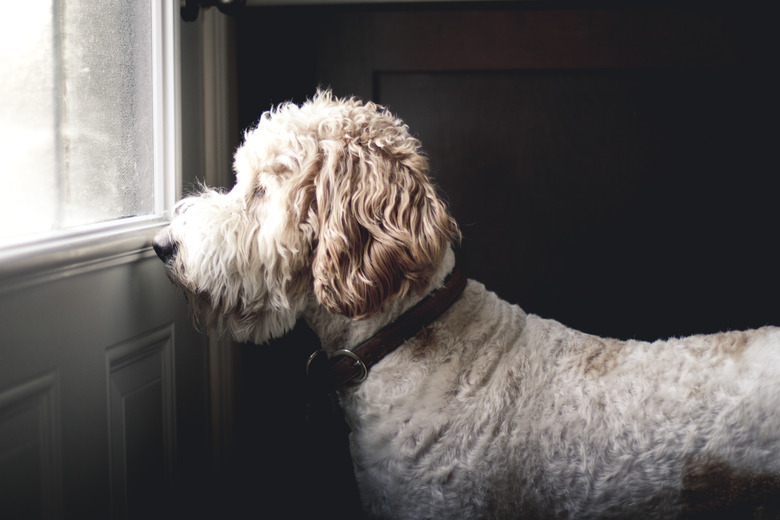How Long After A Puppy Eats Do They Poop? Figuring Out When To Take A Dog Outside After Eating
The call of nature affects every one of us. When and how often you answer the call depends on the individual, and that is also true of our canine companions. We don't need an invigorating walk to stimulate our bowels, but it can help if there's an issue. A bit of walking or running around also gets a dog's intestines moving, so a constitutional after breakfast or dinner should result in a potty break.
The canine digestive tract
The canine digestive tract
Understanding the elimination process requires an understanding of the canine digestive tract. Dog digestion starts in the mouth, of course, but it differs from food entering the human mouth. Dogs don't chew their food carefully — as you've probably noticed — and saliva makes up for lack of chewing, according to Dogster. Food passes down the esophagus to the stomach. Once there, food becomes chyme, a substance consisting of water, food, and stomach acid.
Chyme then heads into the first part of the small intestine, the duodenum. Enzymes and hormones there reduce chyme's acidity. When chyme heads to the second part of the small intestine, the jejunum, the probes within extract the substance's nutrients. The final stage for chyme in the small intestine is the ileum, www.cuteness.com="" article="" aid-dogs-digestion-naturally"=""> where any remaining nutrients are absorbed.
The last stage is the large intestine, where water is removed, and the chyme is given one final going-over by bacteria. Anything left over gets molded together and excreted via the anus and rectum into feces.
Canine pooping schedule
Canine pooping schedule
Every dog is different, and while some will poop right after eating, others may not go for about half an hour after consuming their meal. PetMD explains that healthy dogs usually defecate after eating their meals because their stomach "is wired to" the colon by nerves triggering the reflex to eliminate. As soon as the animal's stomach is full, the colon is notified. That means most dogs will poop within that 30-minute period after eating.
Just how many times a dog poops daily varies by the animal. Most dogs defecate between one-and-three times daily, and that's not always after meals. That doesn't mean your dog only needs a couple of outings daily if he tends to poop twice a day. Dogs urinate far more often than they poop, so he'll need to go outside a couple of time just to perform that duty.
If a dog is defecating more often but does not have diarrhea, it may have to do with the quality of the food he eats. Dogs fed a lesser quality food will defecate more often than those fed high-quality fare. Food containing fillers means there are fewer nutrients and more waste that the animal is just going to poop out.
Puppies poop far more often than their adult counterparts, perhaps two-to-three times more. Fortunately, puppies are more likely to poop right after they eat, or certainly within the half-hour time frame. Take your puppy outside immediately after he finishes his meal for both practical and training purposes. When he "does his business" praise him to the hilt.
Digestion time length
Digestion time length
When your dog poops shortly after eating, he is not eliminating the food he just ate. The waste you're disposing of was in his food bowl the day before. Food remains in the canine stomach longer than in the human belly. Small, active dogs tend to digest their food more quickly than larger, more sedentary animals.
Constipation is dangerous
Constipation is dangerous
If your dog isn't defecating within 30 minutes of a meal on a regular basis or is having issues passing feces, a trip to the vet is in order. Signs of constipation also include straining or crying while attempting to pass stool or passing hard fecal material, often in the form of small balls. Other signs include scooting or licking the anal area. Bring a stool sample when you take your pet to the vet.
